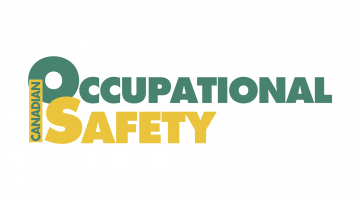Illness/injury prevention
IWH has a long history of conducting research to provide practical guidance to employers, workers, OHS professionals and regulators about what works and what doesn’t in injury or illness prevention. This research targets the injury and illness prevention practices of workplaces, as well as the programs developed by governments, health and safety associations and others to support and motivate workplaces to adopt effective practices.
Featured

At Work article
Differences in firm-level AI use for health and safety
To what extent are Canadian workplaces using artificial intelligence (AI) to help support workers’ health and safety? And what do these workplaces have in common? An IWH study surveyed firms across Ontario and British Columbia to find out.
Published: October 8, 2025

Impact case study
Saskatchewan’s construction safety group uses IWH tool to improve safety culture
This case study details how the Saskatchewan Construction Safety Association (SCSA) members have been analyzing IWH-OPM scores to adjust their safety practices and how SCSA has been using the data to tailor their outreach.
Published: February 10, 2025

At Work article
Calculating the costs of employers’ work-related injury prevention efforts in Ontario
You often hear OHS professionals and advocates talk about the costs of work-related injuries. But what about the costs of preventing the injuries? An IWH research team recently set out to calculate employer OHS investments in Ontario.
Published: November 2018
Journal article
Journal article
The effect of active and passive occupational health and safety (OHS) training on OHS awareness and empowerment to participate in injury prevention among workers in Ontario and British Columbia (Canada)
Published: Safety Science, October 2018

Issue Briefing
What do employers spend to protect the health and safety of workers?
While the financial costs of work-related injury and illness are well known, limited information is available on what employers spend to control or eliminate the causes of work-related injury and illness. This Issue Briefing describes the results of a 2017 study to estimate occupational health and safety expenditures among employers from 17 economic sectors in Ontario, Canada.
Published: September 2018
Journal article
Journal article
The economic burden of occupational non-melanoma skin cancer due to solar radiation
Published: Journal of Occupational and Environmental Hygiene, September 2018
Journal article
Journal article
Occupational health and safety vulnerability of recent immigrants and refugees
Published: International Journal of Environmental Research and Public Health, September 2018

IWH in the media
Women in education sector at greater risk of workplace violence
Women working in Ontario’s education sector are four to six times more likely than their male counterparts to require time off work because of being physically assaulted on the job, reports the Canadian Occupational Safety.
Published: Canadian Occupational Safety, August 2018

Research Highlights
OHS vulnerability among new immigrants
Recent immigrant workers are 1.6 times more likely than Canadian-born workers to experience occupational health and safety (OHS) vulnerability, defined as exposure to hazards without adequate protection to mitigate those hazards.
Published: August 2018

At Work article
Sex/gender analysis: Are risks of violence at work higher for men or women? It depends on type of violence
Men and women face similar risks of physical violence at work, but the risks of sexual violence at work are four times higher for women than for men.
Published: August 2018
Journal article
Journal article
Examining risk of workplace violence in Canada: a sex/gender-based analysis
Published: Annals of Work Exposures and Health, July 2018
IWH Speaker Series
IWH Speaker Series
Reporting and consequences of workplace violence in six Ontario hospitals
We currently do not know what proportion of workplace violence incidents in Ontario are captured by each hospital’s reporting system. We also lack information on reasons for not reporting workplace violence incidents. Dr. Peter Smith of the Institute for Work & Health provides findings from a survey in late 2017 of over 1,000 workers in six Ontario hospitals on the incidence, reporting and consequences of workplace violence. He also discusses the implications of these findings on the interpretation of Ontario's new mandatory indicator of workplace violence.
Published: May 2018